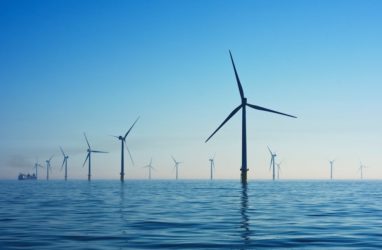Feed aggregator
Greens will back Labor's safeguard mechanism without a ban on new coal and gas. That's a good outcome
Living on a boat is hard – but it’s worth it to escape the toxic rental market | Faye Keegan
The challenges are myriad, including raising a child and, yes, using the toilet. But we’ve gained so much more than we lost
When people find out that I live on a narrowboat, their eyes light up. They say things like “Gosh, I’d love to do that,” and “That’s so bohemian of you!,” and “It must be so peaceful”. It is peaceful, sometimes, but it’s easy to forget that when you’re struggling to push open a heavy lock gate in the pouring rain with a screaming baby strapped to your chest. Still, I love the way I live: I love being close to the water, and feeling more connected to nature and in sync with the changing seasons than I did living on land.
That isn’t to say boat life was always the plan. I used to imagine I’d end up in some rambling old farmhouse, with Farrow & Ball wallpaper, period features and an open fire. I still get pangs when I visit friends’ seemingly enormous and lavishly equipped houses – upstairs and downstairs! A freezer! Hot taps! But for my husband, Nigel, and I, with our ill-paid, bookish jobs (I’m a writer, he’s a librarian. OK fine, my ill-paid job) along with, you know, The Economy, buying a house just isn’t feasible, especially where we live in Oxford. But owning his own home has always been important to Nige, who grew up in council housing, so we began to explore alternative options. Once we let go of the impossible goal of a house and focused instead on what we could afford, everything changed.
Continue reading...Energy Insiders Podcast: How big will offshore wind be?
 Corio CEO Jonathan Cole on big turbines and even bigger offshore wind plans. Plus. Matt Kean and busted coal.
Corio CEO Jonathan Cole on big turbines and even bigger offshore wind plans. Plus. Matt Kean and busted coal.
The post Energy Insiders Podcast: How big will offshore wind be? appeared first on RenewEconomy.
Hydrogen expert says blending green fuel into gas network an “expensive” waste
 Visiting expert says "scarce and precious" green hydrogen should not be wasted on hot water and cooking when cheap abundant solar can do the job.
Visiting expert says "scarce and precious" green hydrogen should not be wasted on hot water and cooking when cheap abundant solar can do the job.
The post Hydrogen expert says blending green fuel into gas network an “expensive” waste appeared first on RenewEconomy.
Macquarie’s Corio says Victoria can double its offshore wind green dream
 Macquarie's Corio says Victoria could easily beat its offshore wind targets, which in turn would facilitate a more rapid exit of coal.
Macquarie's Corio says Victoria could easily beat its offshore wind targets, which in turn would facilitate a more rapid exit of coal.
The post Macquarie’s Corio says Victoria can double its offshore wind green dream appeared first on RenewEconomy.
Canadian carbon project financier closes fresh round of financing
Labor agrees to absolute cap on emissions to secure Greens backing for safeguard mechanism climate bill
Adam Bandt says deal puts ‘significant hurdles’ in the way of new coal and gas but Chris Bowen insists it will not kill off new investment
- Follow our Australia news live blog for the latest updates
- Get our morning and afternoon news emails, free app or daily news podcast
The Albanese government’s signature climate bill targeting big polluters is a step closer to passing after a deal with the Greens including an absolute cap on emissions.
The Greens leader, Adam Bandt, announced the deal on the safeguard mechanism bill on Monday, taking credit for “a big hit on coal and gas” that could effectively block half of 116 proposed new fossil fuel projects.
Continue reading...Latrobe Valley wind farm beats court challenge, targets 2024 construction
 Supreme Court quashes challenge to 200MW Delburn Wind Farm, paving the way for the 33 turbine project to go ahead in Victoria’s Latrobe Valley.
Supreme Court quashes challenge to 200MW Delburn Wind Farm, paving the way for the 33 turbine project to go ahead in Victoria’s Latrobe Valley.
The post Latrobe Valley wind farm beats court challenge, targets 2024 construction appeared first on RenewEconomy.
“Huge hit” to coal and gas as hard cap and pollution trigger added to Safeguard reforms
 Labor and Greens agree to raft of changes to Safeguard Mechanism, including new measures the Greens say will put new coal and gas projects "on the ropes."
Labor and Greens agree to raft of changes to Safeguard Mechanism, including new measures the Greens say will put new coal and gas projects "on the ropes."
The post “Huge hit” to coal and gas as hard cap and pollution trigger added to Safeguard reforms appeared first on RenewEconomy.
Fresh blow for Queensland coal, as shareholder dispute topples Callide C co-owner
 Future of broken down Callide C coal plant in fresh doubt after a shareholder dispute sends its part owner into voluntary administration.
Future of broken down Callide C coal plant in fresh doubt after a shareholder dispute sends its part owner into voluntary administration.
The post Fresh blow for Queensland coal, as shareholder dispute topples Callide C co-owner appeared first on RenewEconomy.
Australia’s Safeguard Mechanism passes in lower house of parliament after government strikes compromise with Greens
Sydney-based fund manager establishes global compliance carbon market fund
Why Western Sydney is feeling the heat from climate change more than the rest of the city
Australian planting tech company partners with investment group to raise A$200 mln
Little progress made on energy efficiency in UK homes, report finds
National Infrastructure Commission accuses ministers of ‘prevarication’ over installation of heat pumps
Ministers have made negligible progress in improving the energy efficiency of the UK’s homes even as Russia’s invasion of Ukraine has underscored the need to cut the reliance on gas for home heating, according to the National Infrastructure Commission (NIC).
The independent infrastructure tsars’ annual report warned that the progress towards improving the UK’s infrastructure “stuttered further” last year, despite the need for increased investment to meet its economic and climate goals.
Continue reading...Poole harbour: major incident declared over leak from oilfield
About 200 barrels of reservoir fluid leak into the Dorset harbour, a site of special scientific interest
A major incident has been declared on Sunday following an oil leak from the UK’s largest onshore field into Poole harbour in Dorset.
The incident, which took place at Wytch Farm oilfield in Dorset, resulted in approximately 200 barrels of “reservoir fluid” being released.
Continue reading...Deep-sea mining for rare metals will destroy ecosystems, say scientists
Businesses want to trawl for nickel, manganese and cobalt to build electric cars and windfarms
An investigation by conservationists has found evidence that deep-seabed mining of rare minerals could cause “extensive and irreversible” damage to the planet.
The report, to be published on Monday by the international wildlife charity Fauna & Flora, adds to the growing controversy that surrounds proposals to sweep the ocean floor of rare minerals that include cobalt, manganese and nickel. Mining companies want to exploit these deposits – which are crucial to the alternative energy sector – because land supplies are running low, they say.
Continue reading...There’s no greater feminist cause than the climate fight – and saving each other
When my country, Pakistan, flooded last year, women faced particular suffering. That’s true around the world
Last summer, a third of Pakistan was underwater. My country, the fifth most populous in the world, was submerged. Two million homes were destroyed, thousands of acres of agricultural land were flooded and 90% of the crops in Sindh, a food belt, were damaged. Thousands of kilometres of roads were rendered unusable, a million livestock killed, hospitals and schools obliterated, and 30 to 50 million people – a number as large as the population of Canada or Spain – were displaced and dispossessed.
It was the climate crisis that brought this nightmare to Pakistan. Pakistan has the second largest number of glaciers after the Arctic poles and thanks to global heating, they are melting at unprecedented, unmanageable speeds. Glacial melt combined with another consequence of the Earth’s warming climate, erratic monsoon patterns, and together they created what was called a super-flood.
Continue reading...Methane from fossil fuels is a climate wrecker. Don’t let it wreck the safeguard mechanism, too
 There is no technically feasible way to draw down methane from the atmosphere, and no “like for like” offsetting is possible.
There is no technically feasible way to draw down methane from the atmosphere, and no “like for like” offsetting is possible.
The post Methane from fossil fuels is a climate wrecker. Don’t let it wreck the safeguard mechanism, too appeared first on RenewEconomy.
Australia has just lost its best energy minister, lets hope Labor doesn’t trash his legacy
 The NSW Coalition loss means Australia's best performing energy minister is no longer running the show. What does that mean for the state's transition from coal?
The NSW Coalition loss means Australia's best performing energy minister is no longer running the show. What does that mean for the state's transition from coal?
The post Australia has just lost its best energy minister, lets hope Labor doesn’t trash his legacy appeared first on RenewEconomy.



